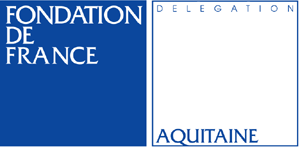The project’s results
Forest sustainable management: a concept, points of view
Forest sustainable management and discussions
Médiaforest Article
The forest perception
Result of the surveys done during the meetings
Jean-Paul Guyon and al. Article
Final report
The workshops for the forest sustainable management in Landes de Gascogne – IEFC/Foundation de France
Since 2002 the European Institute of the Cultivated Forest has been organizing a series of workshops to discuss about the forest sustainable development in the Landes of Gascony massif. These journeys took place under the Foundation of France organisation within the framework of its call for projects ” Together to manage the territory”. Given the fact that the forest sustainable management passes by the sharing of information between local stakeholders and by mutual understanding of their motivations, the IEFC proposed all managers (foresters, farmers, elected members) and to all forest users (hunters, fishermen, hikers, naturalists, children, VTT lovers, etc.) to express their approaches and their expectations in what concerns forest management and the sustainable development of their area.
The specificity of the enterprise initiative in this project is the consultation of the stakeholders. This group is rarely represented in the traditional forest meetings for discussion.
Organised around symbolic thematics about the sustainable organisation of the rural space (water management, rural development economy, biologic diversity, forest hobbies, etc.), the forest sustainable management workshops are the occasion for its participants to talk about what they have in common and in what they differ concerning the several usages in their forest. Also it is the occasion to propose structures for dialogue, tools to be set up and the necessary means for their implementation.
At the same time, the collection, in a local level, of the stakeholders expectations and perceptions towards the forest and its management, will allow us to better understand the relevance of the indicators for the forest sustainable management in what concerns the natural context, the socio-economy and the regional policy.
The meetings take place essentially on the site for the study of the forest sustainable management implemented by the IEFC and the Forest of Aquitaine Observatory. This vast forest area covers about 50,000 ha between the Atlantic coast and the Leyre valley.
Meetings agenda:
- March 7th 2003: Workshop “Agriculture/Forest” in Pissos
- March 12th 2003: Workshop “Forest management and biologic diversity” in Saint Paul en Born
- April 6th 2003: Workshop “Randonnée pédestre en forêt” in Commensaq
- April 25th 2003: Workshop ” Communities and forest sustainable organisation” in Mimizan
- April 27th 2003: Workshop “Bicycle touring in forest” in Gujan-Mestras
- June 11th 2003: Workshop “Discovering the forest environment of the Landes” with an outdoor centre activities of the Landes
- June 18th 2003: Workshop “Discovering the forest stakeholders in the Landes” with an outdoor centre activities of the Landes
School Workshop
The school and the sustainable management
Workshop Communities
Workshop Biodiversity
Agriculture and forest
Workshop hiking
First of all we have noticed that people respond in a quite favourable way when invited to forest tours, giving place to an important mobilization. During each excursion there were some thematic stops that aroused a deep interest on most participants. However, it is clear that the knowledge of the forest environment was uneven among the participants, certain even ignored that most of the forest area belongs to private forest owners. Besides some forest owners that we found, the ones who showed the most interest were the “naturaliste en herbe” that usually have a very superficial knowledge of the natural environment, but have a real interest. For many the label Natura 2000 was understood with the same significance of classified monuments or protected sites, like a guarantee of protection in the natural environment. It was also interesting to see that people do not react to the crossing of large short cuttings, while the clearing cutting for agricultural purposes aroused sole indignation. Altogether we can say that the full usages of pin (wood and non wood) were well known. In a individual level, the hiker sees himself more as a spectator than a stakeholder of the forest environment. The concept of sustainable management, with its socio-environmental level, and the forest certification were almost unknown. He is very well pleased with traditional forest definition: we cut and we plan. However, in a common level, the Hikers Federation tries to diversify its partnerships in order to be involved in the discussions about management and to participate in all actions that concerns their activity.
| Projet Subventionné par la Fondation de France | ||||||||
 |
||||||||
